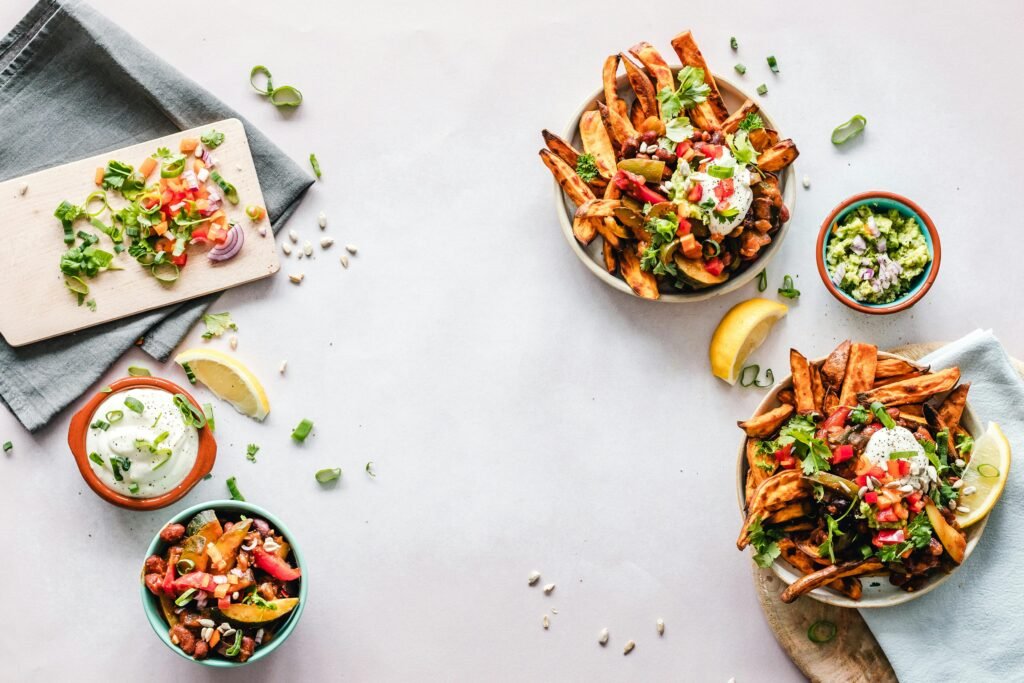In the pursuit of a healthy lifestyle, the concept of “health is wealth” rings true. But investing in your well-being doesn’t have to break the bank. With some practical strategies, you can nourish your body with a balanced diet without sacrificing your budget. In this post, we’ll explore ten budget-friendly tips for achieving a balanced diet that enriches both your health and your wallet.

Plan your meals:
Start by planning your meals for the week ahead. This allows you to make a shopping list based on what you need, minimizing impulse purchases and reducing food waste. Consider incorporating affordable staples like beans, lentils, rice, and seasonal fruits and vegetables into your meal plans.
Embrace whole foods:
Focus on whole foods that offer maximum nutritional value for your money. Instead of processed snacks and convenience foods, opt for whole grains, lean proteins, and fresh produce. These nutrient-dense options provide essential vitamins, minerals, and antioxidants to support your health.

Buy in bulk:
Buying staple items like grains, legumes, and nuts in bulk can save you money in the long run. Look for bulk bins at your local grocery store or consider joining a co-op to access discounted prices on pantry essentials. Just be sure to store bulk items properly to maintain freshness.

Cook at home:
Eating out can be expensive and often leads to less healthy food choices. By cooking at home, you have control over the ingredients you use and can tailor your meals to meet your nutritional needs. Experiment with new recipes and batch cook to save time and money throughout the week.
Shop seasonally:
Seasonal produce is not only fresher and tastier but also more affordable. Take advantage of seasonal fruits and vegetables to add variety to your diet while keeping costs down. Farmers’ markets and local produce stands are great places to find seasonal produce at competitive prices.
Minimize food waste:
Reduce food waste by using up ingredients before they spoil and repurposing leftovers into new meals. Get creative with meal planning to incorporate leftover ingredients into future dishes. Additionally, consider composting food scraps to reduce your environmental footprint.

Grow your own:
Growing your own fruits, vegetables, and herbs is not only rewarding but also cost-effective. Even if you don’t have a backyard, you can grow herbs and small vegetables in containers on a balcony or windowsill. Gardening allows you to enjoy fresh, organic produce at a fraction of the cost.
Prioritize nutrient-rich foods:
When shopping on a budget, focus on purchasing foods that provide the most nutritional bang for your buck. This includes foods high in vitamins, minerals, and healthy fats, such as leafy greens, fatty fish, nuts, and seeds. These nutrient-rich foods are essential for maintaining optimal health.

Limit processed foods:
Processed foods are often high in added sugars, unhealthy fats, and artificial additives, yet they offer little nutritional value. By minimizing your intake of processed foods, you can save money and improve your overall health. Instead, opt for whole, minimally processed foods whenever possible.
Stay hydrated:
Don’t forget the importance of staying hydrated for overall health and well-being. Water is essential for digestion, nutrient absorption, and regulating body temperature. Keep a reusable water bottle with you throughout the day to encourage regular hydration without spending money on sugary beverages.
Conclusion:
Achieving a balanced diet doesn’t have to be expensive. By implementing these ten practical strategies, you can nourish your body with nutrient-rich foods while staying within your budget. Remember, investing in your health is one of the best investments you can make for a long and prosperous life.